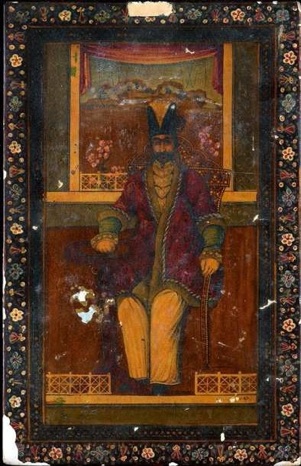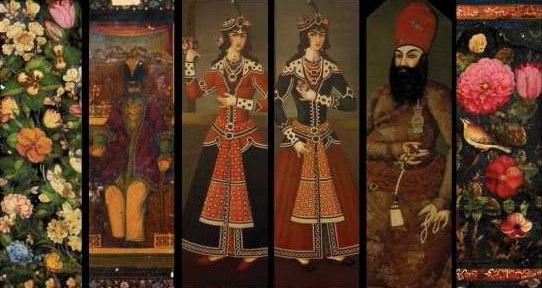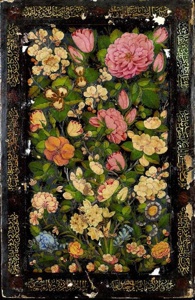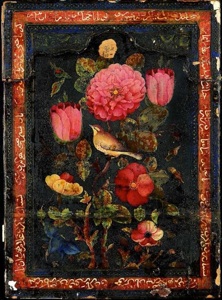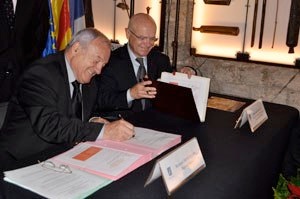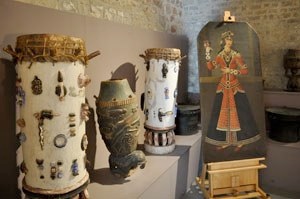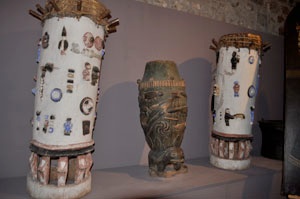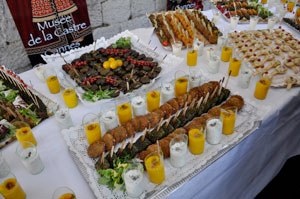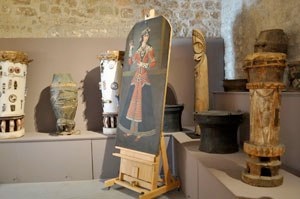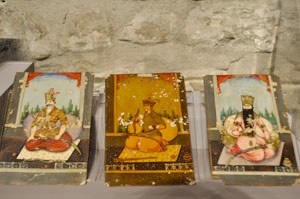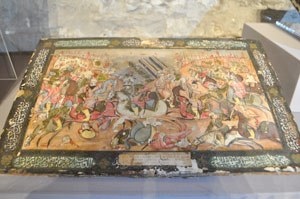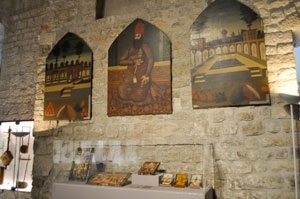Sponsoring for Qajar Art
Help the restoration of the Qajar collection of Cannes Musée de la Castre.
On Saturday, December 10th at Musée de la Castre the Deputy Mayor of Cannes M. Bernard Brochand and the Deputy to the culture launched a call for sponsorship, in partnership with the Heritage Foundation, for the restoration of an exceptional collection of Qajar art, unique in the West, and for the renovation of the La Castre Museum and its expansion. Official speeches took place in a beautiful room of the La Castre Museum, the former chapel of the twelfth century. The signature of a sponsoring agreement with the Alpes Maritimes Heritage Foundation between its delegate, Mr Jean-Louis Marques and Mr Bernard Brochand has been followed by the tasting of a Persian buffet on the historic square overlooking the bay.
The Musée de la Castre is located in a medieval castle, overlooking the magnificent bay of Cannes. It is a non-profit organization labelled Musée de France. Its collections gather ancient non-European art, fostering the opening onto the world. The Persian endowment of the Dutch Baron Tinco Martinus Lycklama à Nijeholt, fond of oriental antiquities, was the founder act of the museum. This project of restoration is aimed to bring to light the richness and diversity of Persian culture through an outstanding collection of some 350 objects, mainly from the 1st era of the Qajar art under the reign of Fath Ali Shah (797-1834). Donor Baron Lycklama played a key role in documenting the collection with travelling stories and catalogues. The paintings include some views of gardens, unique in Western collections. They attest not only the Qajars' capacity to adapt to Western tastes and techniques, but also the permanence of local traditions. The collection illustrates the strengthening relations between Europe and the Eastern World in the 19th century - economic and political, but also, diplomate and artistic. The Qajar saw these ties with Europe as a way to confirm Persia's place among the great nations and to open the country to the modem world. The Musée de la Castre undertakes a global project that will lead to:
- the creation of a new gallery on the whole Persian civilisation,
- an original study on Qajar art in cooperation with the Louvre Museum and the National Heritage Institute, and the organisation of young public's activities. The objects will be able to travel once restored. This project will enable to promote cultural understanding and replace the Persian culture, as it deserves, as one of the major influence over the world. The allocation of donations will be controlled by the Fondation du Patrimoine (Heritage Foundation), a referential independent government-linked fundraising organisation.
The Qajar dynasty: established by Agha Mohammad Shah, the Qajar dynasty ruled Iran from 1786 to 1925. The Qajar governed as powerful monarchs in breaking with tribal traditions. They introduced new ideas of freedom, set up a hierarchical bureaucracy and paid close attention to the ceremonial of the court. This period was marked by a strong development of the arts and the power struggle that English, French and Russians engaged in, in particular to control major trade routes to India and the Persian Gulf. The Qajar saw their ties with Europe as a way to affirm the place of Persia among the chessboard of strategic and economic interests of great nations, to establish the dynasty and open the country to modernity and Western technologies.
To support the preservation of the persian culture, donation can be done through http://www.fondation-patrimoine.org/fr/provence-alpes-cote-d-azur-21/tous-les-projets-980/detail-musee-de-la-castre-a-cannes-12368
